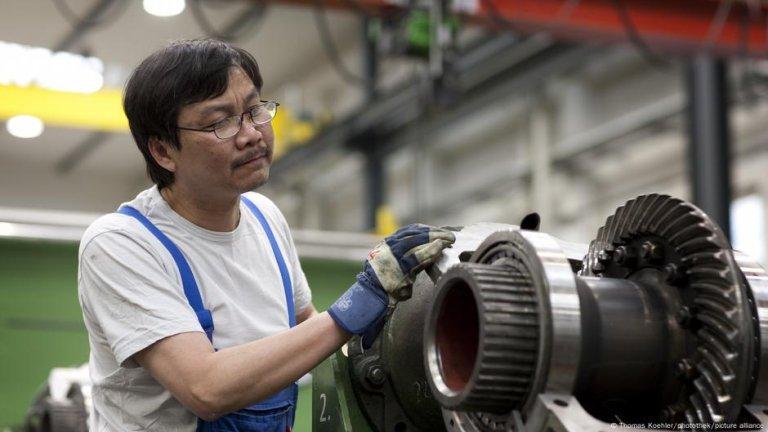Japan faces a growing paradox as its economy increasingly relies on foreign workers amid a rapidly aging population, yet far-right factions within the country are mounting opposition to immigration. While government policies have cautiously expanded avenues for foreign labor, nationalist groups and conservative voices are intensifying campaigns against what they perceive as threats to Japan’s cultural homogeneity. This tension poses significant challenges for policymakers striving to balance economic necessity with sociopolitical pressures, underscoring a critical debate unfolding in one of the world’s most insular societies.
Japan’s Aging Workforce Drives Urgent Demand for Foreign Labor
Japan’s demographic crisis has left the country grappling with an unprecedented labor shortage. With the population rapidly aging and the working-age population shrinking, industries from manufacturing to healthcare are struggling to fill critical roles. To sustain economic growth and maintain social services, Japan has increasingly turned to foreign workers as an essential stopgap. The government has introduced programs aimed at easing visa restrictions and expanding opportunities for foreign laborers, particularly in sectors such as construction, agriculture, and elder care.
However, this pragmatic approach faces significant opposition from right-wing nationalist groups, who perceive increased foreign labor as a threat to cultural homogeneity and national identity. This politicization of immigration has led to growing social tensions and challenges for both policymakers and migrants. Key issues raised by critics include:
- Concerns over integration: Skepticism about the assimilation of foreign workers into Japanese society.
- Economic fears: Worries about job security for native workers amid an influx of cheap labor.
- Nationalism: Arguments favoring preservation of traditional values and skepticism of multiculturalism.
| Sector | Foreign Worker Demand (2024) | Labor Shortage Impact |
|---|---|---|
| Healthcare | 120,000+ | Critical shortage in elder care |
| Manufacturing | 85,000+ | Delays and production slowdowns |
| Agriculture | 50,000+ | Seasonal workforce deficit |
Far Right Opposition Fuels Tensions and Challenges to Immigration Policies
Amidst Japan’s pressing labor shortages, nationalist groups have increasingly mounted vocal opposition to the acceptance of foreign workers. These factions, often aligned with far-right ideologies, argue that expanding immigration threatens cultural homogeneity and national identity. This rhetoric not only stokes social tensions but complicates policy discussions at a time when economic realities are demanding a more inclusive approach to labor. The far right’s growing presence manifests in protests, aggressive social media campaigns, and political pressure aimed at curbing immigration reforms.
Such resistance undermines the government’s efforts to implement pragmatic solutions that balance economic needs with social stability. While advocates emphasize the critical role foreign workers play in sectors like agriculture, elder care, and construction, opposition groups highlight concerns such as:
- Jobs competition – allegedly taking positions from Japanese nationals
- Cultural integration – fears of eroding traditional customs
- Security issues – claims linking immigration to rising crime rates
This dynamic presents a challenging landscape for policymakers, who must navigate between economic imperatives and a polarized public opinion fueled by nationalist sentiments.
| Sector | Foreign Worker Demand | Far Right Opposition Level |
|---|---|---|
| Agriculture | High | Moderate |
| Elder Care | Very High | High |
| Construction | High | Moderate |
| Hospitality | Medium | Low |
Bridging the Divide Proposes Inclusive Strategies to Sustain Economic Growth
Japan stands at a critical crossroads as demographic decline and labor shortages threaten to stall its long-standing economic momentum. While the government’s policies have increasingly acknowledged the need for foreign workers to fill gaps in sectors such as healthcare, construction, and technology, social resistance led by far-right groups complicates integration efforts. These factions emphasize national homogeneity and push back against multiculturalism, fueling public skepticism and creating a volatile environment for policy execution.
Experts argue that overcoming these tensions requires not only legislative action but also a cultural shift towards inclusivity. Proposed strategies include:
- Robust language and cultural training for foreign workers to ease assimilation.
- Community engagement initiatives designed to foster mutual understanding between locals and immigrants.
- Workplace diversity policies encouraging equal opportunities and anti-discrimination measures.
| Sector | Current Labor Shortage (%) | Projected Foreign Worker Demand (2025) |
|---|---|---|
| Healthcare | 15 | 120,000 |
| Construction | 12 | 80,000 |
| Information Technology | 10 | 45,000 |
Closing Remarks
As Japan confronts the pressing realities of an aging population and shrinking workforce, the nation’s reliance on foreign labor becomes increasingly indispensable. Yet, the rise of far-right sentiment threatens to complicate this critical economic transition, fueling social divisions and policy challenges. How Japan navigates this tension will shape not only its economic future but also its identity as a society grappling with globalization and change. Bloomberg will continue to monitor these evolving dynamics as the country seeks a path forward amid competing pressures.




